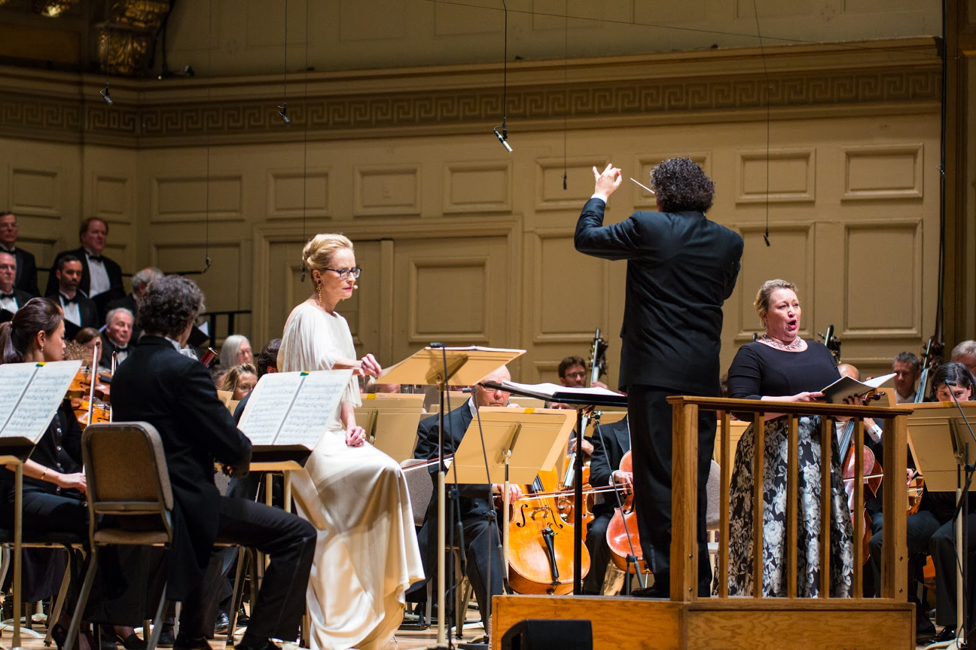Powerful but Poignant: Guerrero leads the BSO in Bernstein, Tchaikovsky

Photo courtesy of Robert Torres
Classical producers John Lim and Allison Pao attended the Boston Symphony Orchestra’s March 17th performance of Tchaikovsky’s 6th Symphony (“Pathétique”) and Bernstein’s 3rd Symphony (“Kaddish”) under the direction of guest conductor Giancarlo Guerrero.
Tchaikovsky’s 6th and final Symphony, also known as the Pathétique Symphony, was one of the last pieces composed by Tchaikovsky. At times playful and at times deeply somber, the Pathétique Symphony demonstrates Tchaikovsky’s ability to traverse a tremendous landscape of emotions.
In his powerful rendition of Tchaikovsky’s 6th Symphony, Guerrero showcased his deep familiarity with the music as he led the BSO through the different musical worlds of each movement. The first movement showcased the unparalleled skill and mastery of individual sections within the BSO. The extended viola solos throughout the first movement were masterfully led by principal violist Danny Kim. And the powerful entrance of the brass reminded the audience what a world-class brass section sounds like. After the solemn conclusion of the first movement, Guerrero took a moment for the audience to recollect. Just before the downbeat of the second movement, he turned to his right and gave a playful wink to the balcony audience. As he guided the orchestra through the lilting 5/4-time dance, Guerrero conveyed the music’s lighthearted character through his dance-like motions on the podium and his amusing facial expressions to the orchestra.
In the third movement, Guerrero held the audience in playful suspense, as if the orchestra were keeping a secret from the audience for as long as possible. The scherzo nature at the beginning of the movement gradually developed into a more triumphant, grandiose character. The movement, which concludes with a deceptively resolute finale, would have elicited immediate applause from the audience, had Guerrero not started the fourth movement almost attacca or without a pause. The solemn final movement sounded like an apology for the exuberance of the previous movement, as if Tchaikovsky was atoning for his display of joy. The music gradually decays in spirit as the music succumbs to the suffocating forces of death and fate. After the final note of the celli and bass died out, Guerrero held both orchestra and audience captive for a few seconds of silence, giving space for the music to exhale its dying breath. Guerrero’s ability to evoke these vast, intense worlds of emotion – especially with an orchestra he does not normally collaborate with – demonstrated his true artistry as a conductor and musician.
After the intermission, Guerrero led the orchestra in an intense performance of Leonard Bernstein’s “Kaddish” Symphony No. 3 to commemorate the composer’s centennial. In this symphony, Bernstein subverts the traditional Jewish Kaddish prayer to convey his humanistic message. Rather than containing abundant praise for God, the text of Bernstein’s Kaddish judges God in defense of humanity.
The opening immediately establishes the inverted nature of Bernstein’s Kaddish. “O, my Father: ancient, hallowed, lonely, disappointed Father: betrayed and rejected Ruler of the Universe.” Narrator Laila Robins spoke with a sense of urgency. She was accompanied by an incoherent, barely perceptible noise which emerged from the chorus at the back of the stage. Every so often, the shimmering sheet of sound woven by the upper strings would be interrupted by brash interjections from the trumpets and thundering downbeats from the timpani. The solo string sections were beautifully transparent yet somehow still stagnant, keeping audience members on the edge of their seats. The repeated “amens” sung by the chorus in the second movement would more accurately be described as animalistic screams. A few rays of peace seem to peek through this otherwise dark, violent, and aggressive piece, replete with lush strings and soaring melodies, but Bernstein never lets the phrases quite resolve, and the third movement ends on a final dissonant chord. Guerrero masterfully maintained this tense atmosphere throughout the entirety of this forty-minute piece, never once allowing the musicians, singers, listeners, or himself to rest.
Guerrero brought the listeners along the transformative journey of the narrator, who passionately confronts God for failing to honor his covenant with humanity. The narrator’s emotions of anger, fear, and then finally, understanding, were expressed not only through her own speech but also through the playing of the orchestra, the singing of the chorus, and ultimately, through the conducting of Guerrero. Coordination of the orchestra, mixed chorus, boys’ choir, speaker, and soprano solo must have been not only logistically but also musically difficult, but each was equally committed to providing a cohesive, compelling and convincing performance. Guerrero was equally effective highlighting the tender emotions of the Tchaikovsky as he was emphasizing the spiritual components of the Bernstein, and his successful performance of this ambitious program is a true testament to his remarkable musicianship.
Allison Pao '21 and John Lim '20 are Producers for WHRB Classical. You can hear classical music on WHRB on Mondays - Fridays 1pm - 10 pm, Saturdays 1pm - 9pm, and Sundays 2pm - midnight.